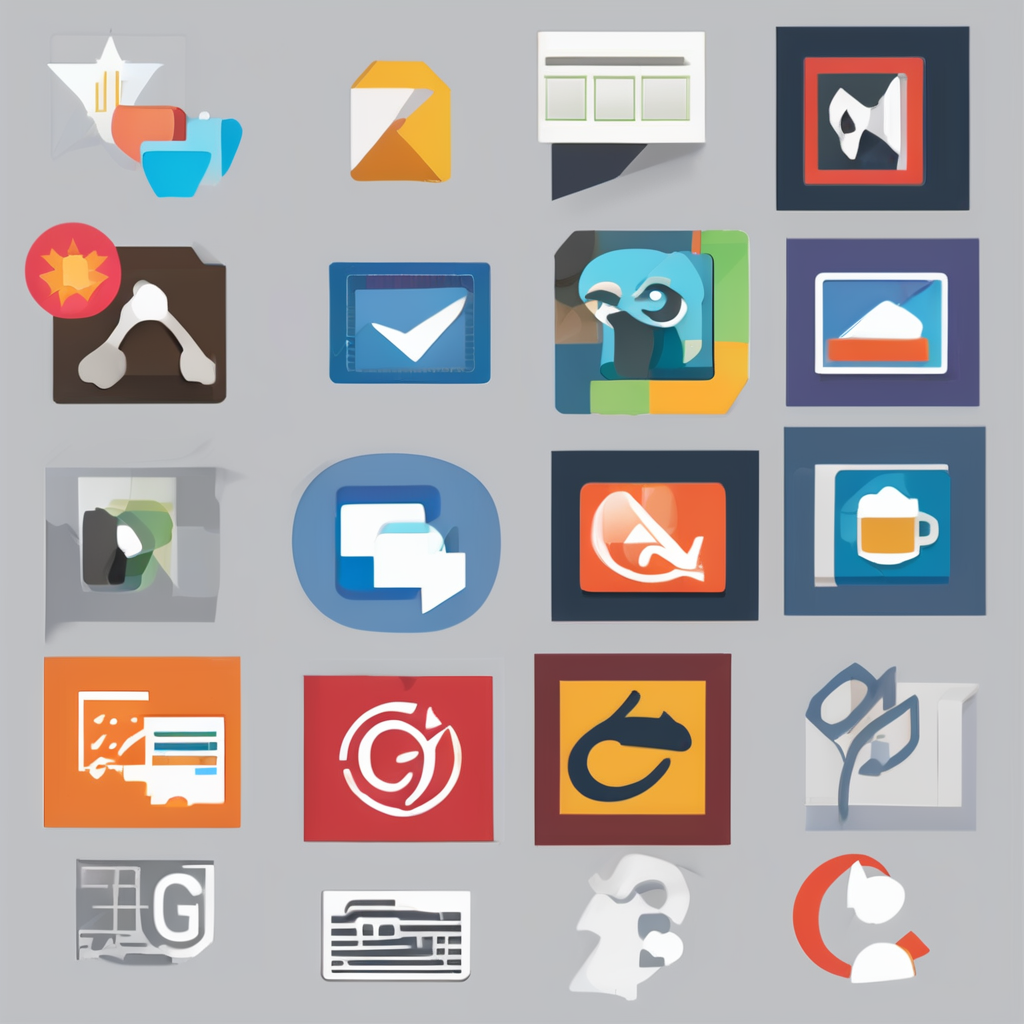Essential Programming Languages for UK Game Development Roles
Understanding the programming skills vital for the UK game industry is crucial for aspiring developers. Core programming languages for games include C++, C#, and Python, each serving distinct roles across studios.
C++ dominates many UK studios due to its performance efficiency, especially in AAA game development and engines like Unreal Engine. This language excels at low-level system control and memory management, which is essential for high-performance games. C# is widely used for game scripting, particularly in Unity, another popular engine in the UK market. Its ease of use and rapid development capabilities make it a favorite for both indie and established studios.
Additional reading : How does the UK gaming industry influence educational technology?
Python, though less common in direct game engine work, plays an important role in tooling, automation, and pipeline scripting within UK companies. Its flexibility enhances workflow efficiency, making it a valuable complementary skill.
Employers in the UK look for candidates who tailor programming skills to the specific job role—whether it’s gameplay coding, engine development, or tools programming. Mastery of these core languages not only improves employability but also aligns candidates with industry expectations, boosting chances of success in the competitive UK video game sector.
In the same genre : How Do Video Games in the UK Influence Cultural Trends in Computing?
Essential Programming Languages for UK Game Development Roles
Understanding the programming skills in demand is crucial for breaking into the UK game industry. Key programming languages for games include C++, C#, and Python, each playing a distinct role in game development studios across the UK.
C++ is widely recognized for performance-critical applications, making it a staple in AAA studios that develop complex engines and high-fidelity games. Its efficiency in memory management and speed is essential for technical roles focusing on engine or gameplay programming.
C# has become synonymous with Unity, one of the most popular game engines used in the UK. Roles requiring integration of game mechanics, UI, and scripting heavily favor candidates proficient in C#. Mastery of C# enhances employability, especially in indie and mobile game development studios leveraging Unity.
Python is less common as a core game development language but remains valuable for tools development, automation, and scripting tasks within UK companies. Its simplicity facilitates rapid prototyping and supports pipeline workflows.
Aligning your skillset with these languages boosts your chances of securing a role. Employers in the UK explicitly seek expertise in these programming languages for games, reflecting studio preferences and project requirements.
Game Engines and Industry-Standard Software
The UK game industry prominently utilizes two principal game engines: Unity and Unreal Engine. These engines anchor most development projects, shaping the programming needs of studios. Unity’s C# scripting and user-friendly interface support rapid prototyping and are favored especially by indie and mobile game developers. In contrast, Unreal Engine, built on C++, is preferred for its high-performance capabilities, realistic graphics, and complex gameplay features, which suit AAA studios.
Supporting software tools, such as integrated development environments (IDEs), version control systems like Git, and collaboration platforms, are also essential in daily workflows. These tools enhance productivity and facilitate teamwork — crucial in the multi-disciplinary environment of UK game studios.
Job postings consistently highlight proficiency with Unity or Unreal Engine as a core requirement, underscoring their dominance. Mastering these engines not only aligns your programming skills with employer expectations but directly increases your employability within the UK game market.
These industry-standard software tools are more than just utilities; they frame how projects are built, tested, and shipped. Understanding their strengths and appropriately matching them to your preferred development role ensures a competitive edge in this sector.
Game Engines and Industry-Standard Software
Game engines like Unity and Unreal Engine are the backbone of UK video game development. Unity is favored for its flexibility and accessibility, especially in mobile and indie projects, while Unreal Engine excels in high-fidelity AAA games due to its powerful rendering capabilities. Professionals aiming for roles in UK studios must be proficient with at least one of these engines, as job listings heavily emphasize engine expertise.
Alongside core engines, supporting software tools streamline design, collaboration, and testing. Tools like version control systems (e.g., Git), digital asset managers, and integrated development environments (IDEs) enable smooth team workflows and efficient project management. Mastery of these tools enhances employability by meeting UK industry expectations for end-to-end development competence.
The dominance of Unity and Unreal in UK job postings reflects their industry adoption. Employers seek developers who not only understand engine-specific scripting — such as C# for Unity or C++ for Unreal — but also know how to leverage engine features for optimisation and debugging. This technical proficiency is crucial for aligning with the UK game industry’s standards and ensures candidates can contribute effectively from day one.
Essential Programming Languages for UK Game Development Roles
The UK game industry relies heavily on three primary programming languages for games: C++, C#, and Python. Each language suits different roles within studios, reflecting their project needs and development pipelines.
C++ remains vital for performance-intensive tasks, like engine development and AAA game creation. Its low-level capabilities make it indispensable for managing memory and optimizing gameplay systems. UK studios developing complex titles expect proficiency in C++ to handle demanding technical challenges efficiently.
C# is the scripting language of choice within Unity, a dominant engine in the UK. Game designers and developers focused on gameplay, UI, and rapid iteration benefit significantly from mastering C#. This language supports agile workflows typical in indie and mobile projects, boosting employability in diverse UK roles.
Although Python is not common for core game mechanics, it holds value for automation, tooling, and pipeline scripting. UK companies increasingly use Python to streamline development processes, highlighting its growing importance alongside traditional programming skills.
Matching your expertise in these programming skills to the specific role—whether engine architecture with C++ or game scripting via C#—greatly increases your appeal in the UK job market. Employers prioritize candidates whose language fluency aligns with their project technologies and studio standards.
Essential Programming Languages for UK Game Development Roles
In the UK game industry, mastering core programming languages for games is fundamental to securing relevant roles. The top languages are C++, C#, and Python, each with distinct applications aligned to studio needs.
C++ is indispensable where low-level control and performance are priorities. UK studios specialising in AAA titles and engine development seek developers with strong C++ skills to optimise memory and maximise speed. This language enables fine-tuning of gameplay systems critical in high-end productions.
For scripting and gameplay iteration, C# shines in Unity-based environments common in UK indie and mobile development. Its user-friendly syntax accelerates production, making it a practical skill that employers consistently require for roles focused on UI, mechanics, and rapid prototyping.
Python’s value lies beyond core gameplay programming; UK studios leverage it to automate pipelines, create tooling, and improve workflows. Understanding Python enhances efficiency and versatility, complementing more intensive coding tasks.
Tailoring your programming skills to the role you target enhances employability. Whether aiming for engine programming or gameplay scripting, aligning expertise with these languages meets UK industry demands and improves job prospects markedly.
Essential Programming Languages for UK Game Development Roles
In the UK game industry, mastering the right programming languages for games is paramount. C++ continues to be the backbone for performance-critical tasks, particularly in studios focused on AAA titles and complex engine development. Its capacity for fine-grained memory management and system-level control makes it indispensable.
Simultaneously, C# has become the dominant scripting language in UK studios using Unity, facilitating fast iteration on gameplay and UI elements. This language’s simplicity compared to C++ enables developers to quickly prototype and implement game features, especially in the indie and mobile sectors.
Though less common as a core game development language, Python is gaining traction for programming skills related to tooling, automation, and pipeline management. UK studios value Python’s ability to streamline workflows, reducing development bottlenecks.
Job roles in the UK video game market typically demand matching these languages to specific functions — engine architecture aligns with C++, scripting and gameplay mechanics with C#, and development support roles with Python. Demonstrating expertise in these languages strongly correlates with enhanced employability and readiness to meet studio expectations.
Essential Programming Languages for UK Game Development Roles
Mastering the right programming skills is crucial to thrive in the UK game industry. The foremost programming languages for games demanded by UK studios are C++, C#, and Python, each serving specific development needs.
C++ remains the benchmark for performance-critical roles, especially in AAA studios and engine development. Its fine control over memory and processing speed aligns well with technical demands in complex UK projects. Studios targeting high-end gameplay optimisation expect candidates well-versed in C++.
C# dominates scripting tasks in Unity-based environments prevalent among UK indie and mobile developers. Its clean syntax and rapid iteration capabilities make it ideal for gameplay mechanics, UI programming, and prototyping. Proficiency in C# directly correlates with employability in these sectors.
While less common in gameplay coding, Python plays a significant supportive role in pipeline automation and tooling, essential for efficient workflows within UK companies. Knowing Python enhances versatility, enabling developers to handle tasks beyond core programming.
Aligning your programming skills with specific roles—whether engine programming with C++ or game scripting in C#—is vital. UK employers prioritize candidates whose language expertise aligns closely with their technological stacks, thereby improving job prospects significantly.











